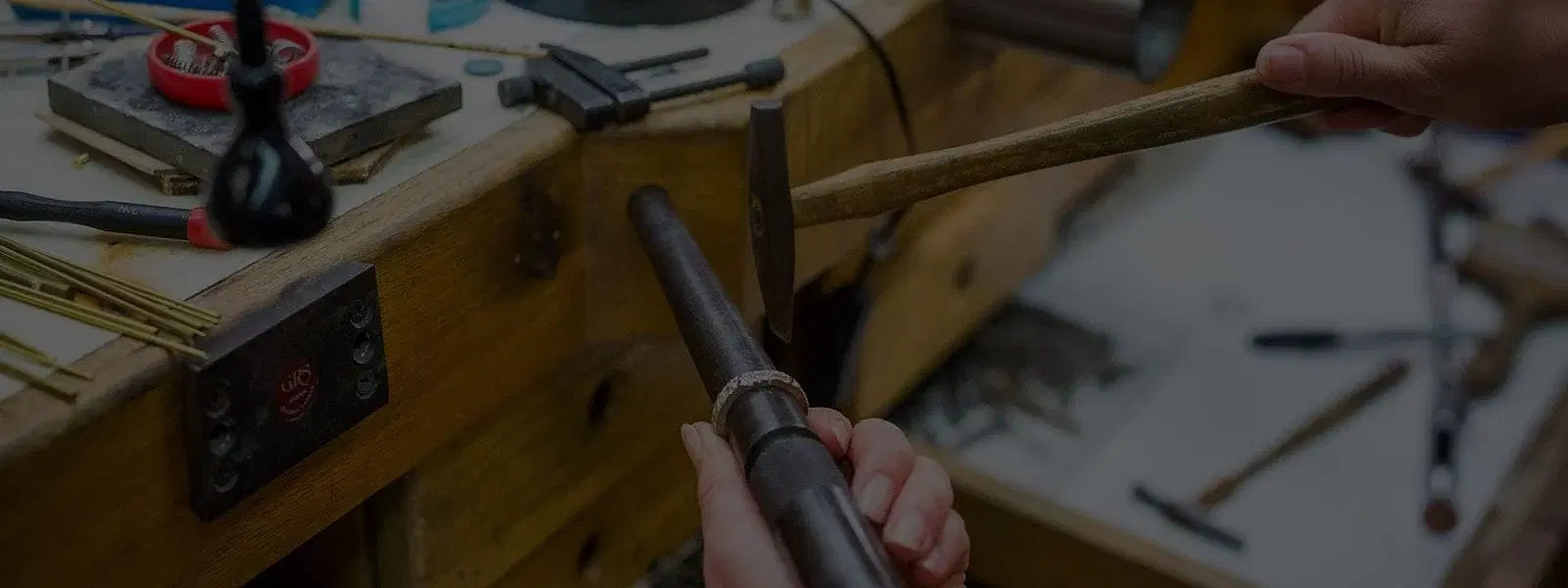Cost Effective, Small Scale Jewelry Photography
Good photos of your work, or pieces you take in for repair, are invaluable. These small-scale photos, however, can be tricky to shoot without the following tips.
2 Minute Read
Rules for Cost Effective, Small Scale Jewelry Photography: Good photos of your work, or pieces you take in for repair, are invaluable. These small-scale photos, however, can be tricky to shoot without the following tips.
Rule No. 1
Always use a tripod or stand to hold your camera steady.
Close-up photos have a short focal length and a shallow depth of focus, so it can be hard to get an entire ring in focus, for example, in macro (close-up) mode. You can make the camera's aperture smaller by using a higher number F-stop to increase the depth of focus and allow less light into the camera. But you need longer exposure times and can't hold the camera steady enough, by hand, to get a good shot. A tripod holds the camera still and gives you the exposures you need to get a good shot.
Rule No. 2:
Always use a diffuser
Highly reflective surfaces — like shiny jewelry — are difficult to photograph. All too often you end up seeing the distorted reflection of everything surrounding the piece, which can be confusing and distracting. The bright reflection of the light source can also be a challenge because it causes overexposed "hot spots" in your photo.
This is where a diffuser will be a big help. Examples include:
- a piece of white copy paper
- tissue paper
- white/translucent plastic
- salvaged diffusing lenses from fluorescent lights/fixtures
The more you can fully surround the piece you are photographing with a diffuser, the better it will block out hot spots and unwanted reflections.
If not a rule, then at least a very strong suggestion: Use multiple light sources.
Single-point illumination can produce dramatic photographs with high contrast between highlights and shadow areas. Sometimes this is desirable, but if you want to see as much detail as possible in the whole piece, single-point illumination can be a problem. Cross lighting will get rid of shadows cast by single-point illumination, and more details can be seen in the piece.
Here's what I use: a frosted, white glass globe (found at lighting supply stores); a piece of clear glass, cut to just fit through the opening of the globe; a roll of tape and a white napkin. The roll of tape is the base for the globe, and the white napkin will mask any color from the tape. Set the globe on the base with the clear glass inside. Mount your camera on a tripod and put the jewelry on the clear glass. Use a tiny bit of beeswax if the piece needs to stand upright.
There will be almost no reflections or hot spots, and you'll get great illumination. Give it a try!
You assume all responsibility and risk for the use of the safety resources available on or through this web page. The International Gem Society LLC does not assume any liability for the materials, information and opinions provided on, or available through, this web page. No advice or information provided by this website shall create any warranty. Reliance on such advice, information or the content of this web page is solely at your own risk, including without limitation any safety guidelines, resources or precautions, or any other information related to safety that may be available on or through this web page. The International Gem Society LLC disclaims any liability for injury, death or damages resulting from the use thereof.
The All-In-One Jewelry Making Solution At Your Fingertips
When you join the Ganoksin community, you get the tools you need to take your work to the next level.
Trusted Jewelry Making Information & Techniques
Sign up to receive the latest articles, techniques, and inspirations with our free newsletter.
